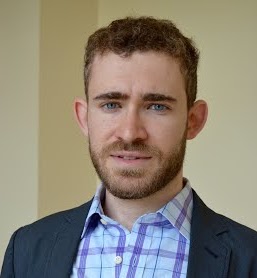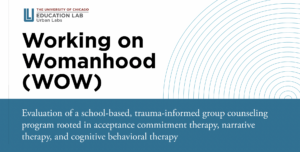Youth Advocate Programs

The Crime Lab and Education Lab, in partnership with Youth Advocate Programs, Inc. (YAP), conducted a randomized controlled trial of YAP’s wraparound advocacy services to evaluate the program’s impact on youth academic outcomes and violence engagement outcomes.
Challenge
Youth violence in Chicago, like in most large cities in the United States, has been a persistent challenge for decades. Chicago has tested many programs and strategies over the years, all with the hope of identifying effective and lasting approaches to reduce the number of young people involved with violence as either victims or offenders.
Opportunity
Reaching disengaged youth at higher risk of violence engagement requires an intensive model to reach and actively engage such youth. One potential promising approach is Youth Advocate Programs, inc. (YAP). YAP’s wraparound services are rooted in building trusting relationships between youth and trained mentors. These mentors work intensively and holistically with youth and their families for an extended period of time, providing individualized, immediate support and connecting families to resources within their communities. In 2018, YAP, Chicago Beyond, and the Crime Lab and Education Lab partnered to implement a randomized controlled trial to measure the causal effects of YAP’s wraparound services on key academic and violence engagement outcomes for high-need youth in Chicago.
Project overview
The randomized controlled trial (RCT) studies the YAP model in its “purest” form by imposing minimal restrictions on who YAP serves, overall program length, and the types of service referrals that are provided. YAP directors and advocates have emphasized that the key feature of the YAP model is the ability of YAP staff to continually modify program delivery for each participant based on their assessed needs and goals. Our impact evaluation seeks to assess the impact of YAP on participants’ school engagement and violence involvement.
To complement the RCT, we use program engagement and qualitative data to develop a comprehensive understanding of the components of YAP’s services and how outcomes may be achieved through an in-depth implementation evaluation. Our qualitative study involved interviews with YAP service providers, YAP clients, and individuals in the client’s personal network; and extended observations of YAP service providers in the field.
Analysis for both the RCT and the implementation evaluation is ongoing.
To complement the RCT measuring program impacts, we use programmatic and qualitative data to develop the first comprehensive understanding of the components of YAP’s services and how services are delivered and received, as well as to generate insight into how outcomes are achieved through an in-depth implementation evaluation using improved program data collection and analysis; interviews conducted with YAP service providers, YAP clients, and individuals in the client’s personal network; and extended observations of YAP service providers in the field.
Years Active
2018 – present
Project Leads
Nour Abdul-Razzak
Research Director, University of Chicago Inclusive Economy Lab

Heather Bland
Research Manager

Monica Bhatt
Senior Research Director

Brandon Domash
Analytics Manager

Max Kapustin
Assistant Professor, Cornell University


Scaling Promising Practices in Youth Mentoring
This case study by Results for America highlights the Crime Lab and Education Lab’s role in the City of Chicago’s bold initiative to expand the evidence-based Becoming a Man group mentoring model to serve thousands of young men.

Randomized evaluation of a school-based, trauma-informed group intervention for young women in Chicago
Science Advances journal publication.

Working on Womanhood Research Brief
Research brief for the Working on Womanhood project.

Seizing the Opportunity to Advance Education Equity
2021 Education Lab report on barriers to education faced by CPS students.
